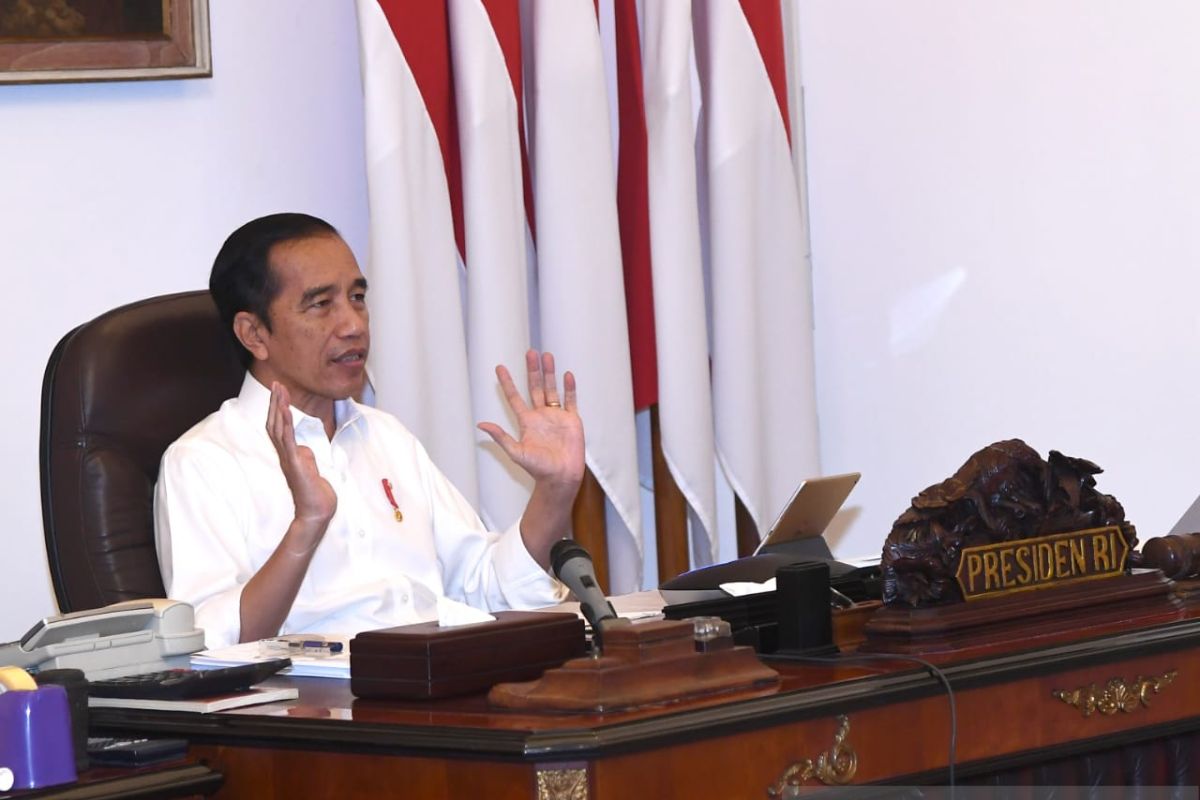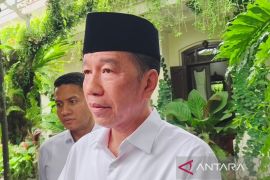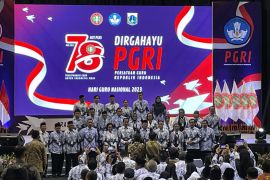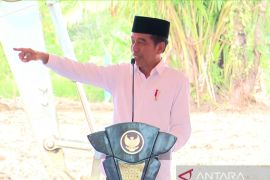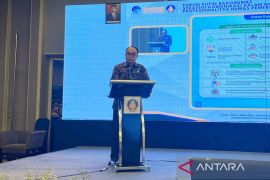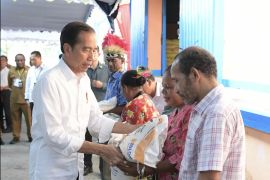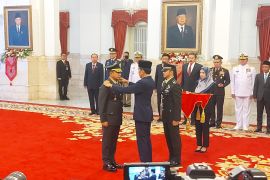I (have) also asked the program for delaying (payments of) installments and interest subsidies be extended to micro entrepreneurs receiving aid from the local governmentJakarta (ANTARA) - President Joko Widodo has implemented five schemes under a program to protect MSMEs and aid their financial recovery, including special programs for ultra-micro and micro-businesses not yet serviced by banks and financial institutions.
"The discussion (on MSME programs) has increasingly narrowed and there are five major schemes (that have been implemented),” President Joko Widodo said in a virtual limited meeting from the Merdeka Palace, Jakarta, on Wednesday.
According to the President, the first scheme is meant for SMEs classified under the poor and vulnerable group amid the COVID-19 outbreak.
This group has been included among recipients of social assistance, such as aid granted under the Family Hope Program (PKH), food packages, cash assistance, direct cash assistance, exemption or reduction of electricity tariffs, as well as pre-employment cards, the President informed.
Under the second program, tax incentives are being offered to SMEs whose annual turnover remains below Rp4.8 billion.
"I think the government has reduced the income tax rate for MSMEs from 0.5 percent to 0 percent over a six month period, from April to September, 2020," the President said.
Under the third program, MSME loans are being relaxed and restructured through various programs.
The relief provided includes delay in payment of installments and interest subsidies for recipients of micro credit (KUR), ultra-micro credit, and the Prosperous Family Economic Development (Mekaar) program, who add up to 6.4 million. State-owned pawnshop Pegadaian has 10.6 million debtors.
"I (have) also asked the program for delaying (payments of) installments and interest subsidies be extended to micro entrepreneurs receiving aid from the local government," President Jokowi said.
The fourth scheme involves expansion of financing for MSMEs in the form of stimulus for emergency working capital assistance.
There are still 23 million MSMEs that have never received funding from financial institutions or the banking system.
"Therefore, the 23 million MSMEs must obtain a program from the expansion of work program funding. For those that are bankable, the distribution will be conducted through the expansion of the micro credit (KUR) program, and it will encourage financial inclusion, while those (who are) not bankable, the distribution can be carried out via UMI (Ultra Micro Financing) through Mekaar (Fostering the Economy of Prosperous Families) and other programs," the President stated.
Under the fifth program, ministries, institutions, state-owned enterprises, and regional governments would serve as a "shield" in the MSME business ecosystem, especially in the early stages of recovery.
"The consolidation of business is very important. For example, state-owned enterprises (BUMN) or region-owned enterprises (BUMD) (must) become buyers for products of MSME actors in the fields of agriculture, fisheries, culinary, and the home industry," President Jokowi stated.
In addition, the government is pushing for reallocation of regional government budgets directed at economic stimulus programs that touch the MSME sector.
"I hope that the Minister of Home Affairs can convey the schemes to the regional heads. As a result (of the schemes), our MSMEs would survive in the midst of the COVID-19 pandemic," the President declared. (INE)
Related news: 23 million MSMEs should receive funding for working capital: Jokowi
Related news: President outlines plan to exempt MSMEs from income tax for six months
EDITED BY INE
Translator: Hanni Sofia, Azis Kurmala
Editor: Fardah Assegaf
Copyright © ANTARA 2020
